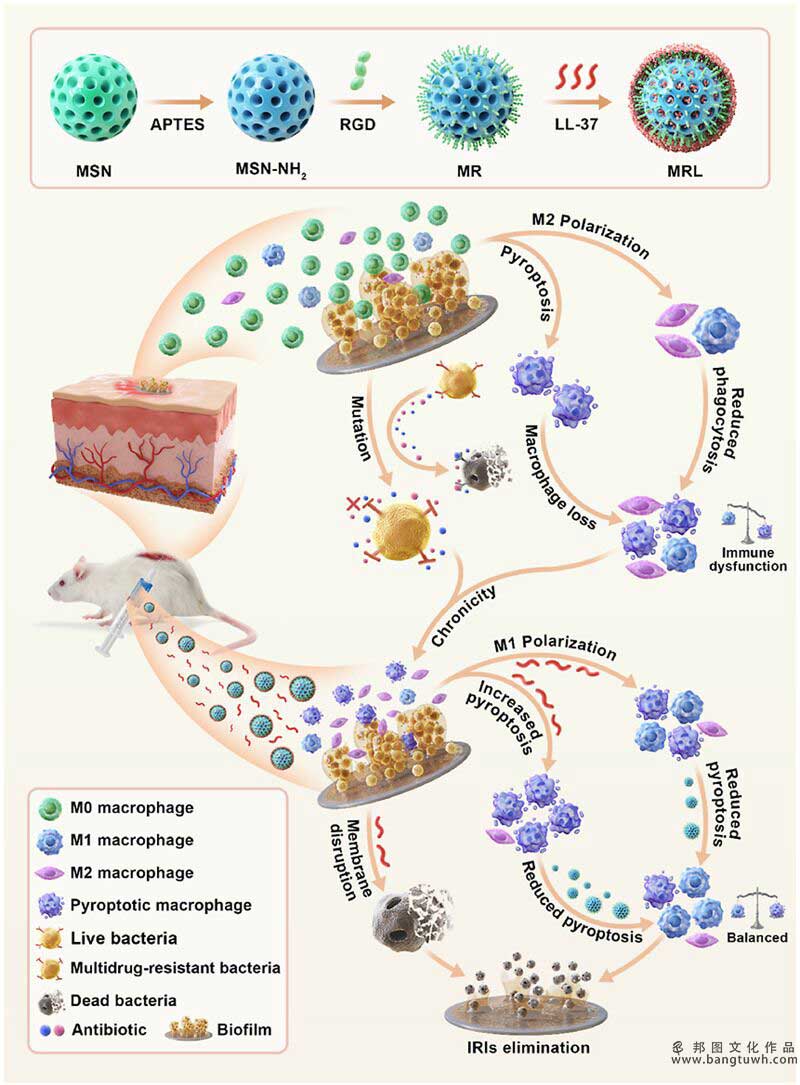科研绘图SCI画图作图学术杂志封面设计TOC示意图文章配图医学动画





Implant-related infections (IRIs) present a significant challenge in clinical treatment because of the formation of biofilms. The complex architecture of biofilms not only impedes antibiotic penetration, fostering the evolution of multidrug resistance in bacteria under minimal selective pressure but also suppresses the antimicrobial activity of macrophages and induces their pyroptosis in large quantities. This excessive pyroptosis impairs the collective immune function of macrophages, enabling pathogens to evade immune system clearance and rendering infection difficult to eradicate. Existing treatment strategies often necessitate extensive surgical debridement, which not only causes significant harm to patients' physiological health and quality of life but also results in limited therapeutic outcomes.









